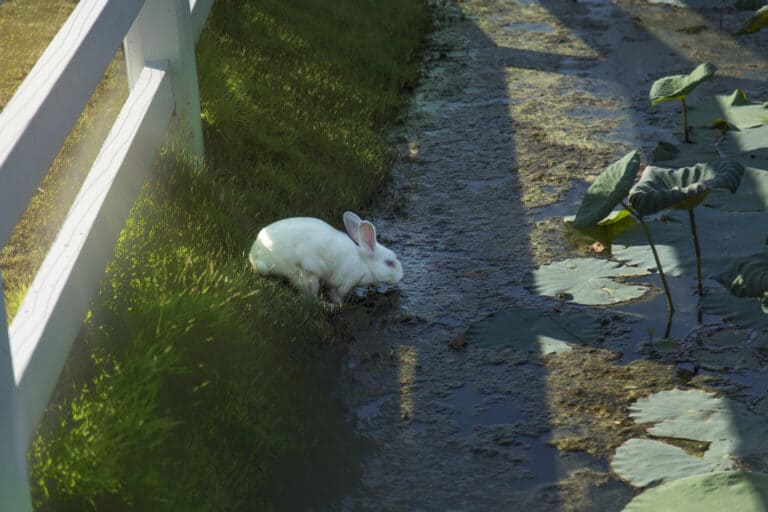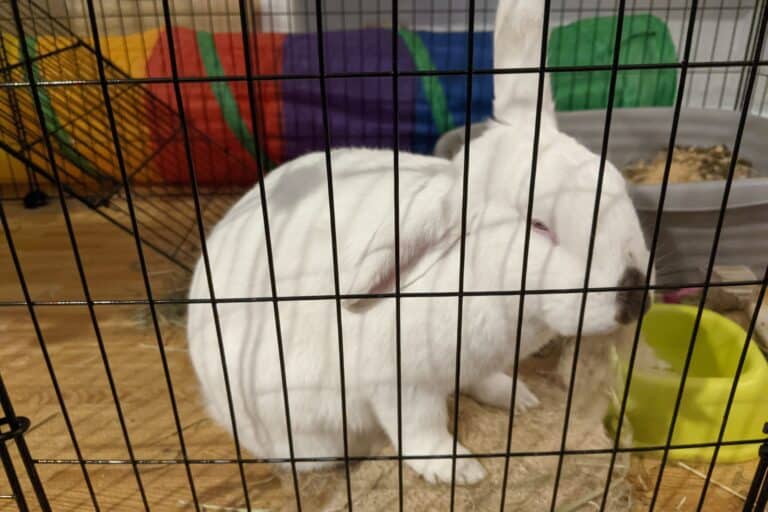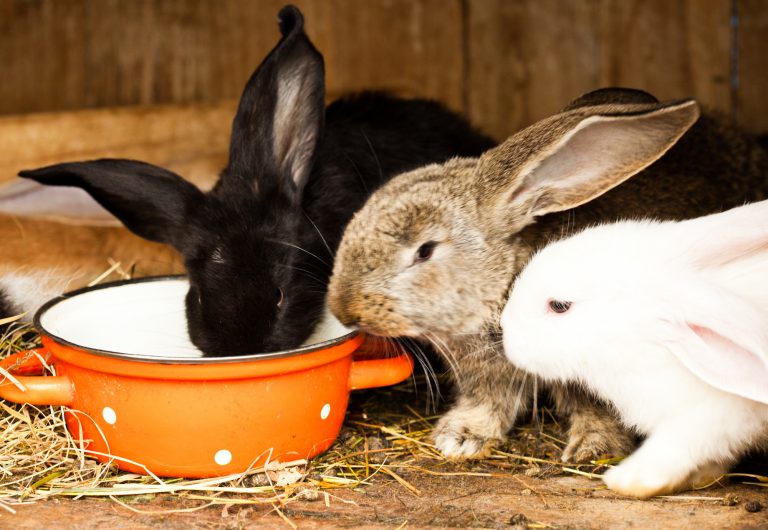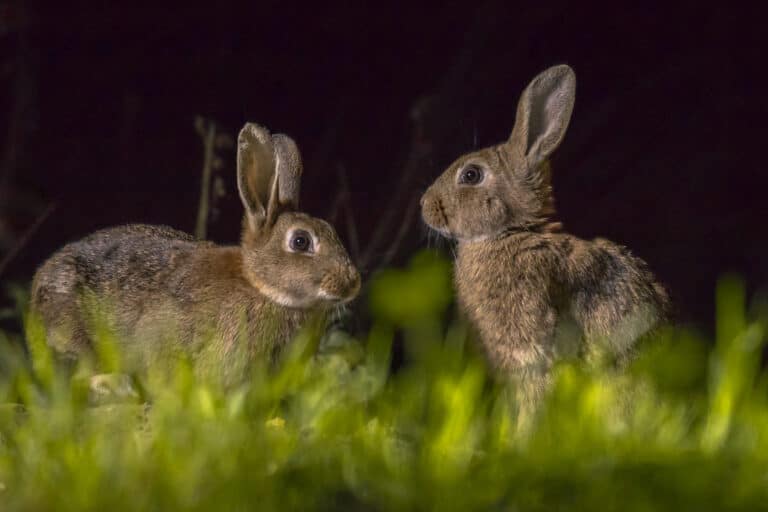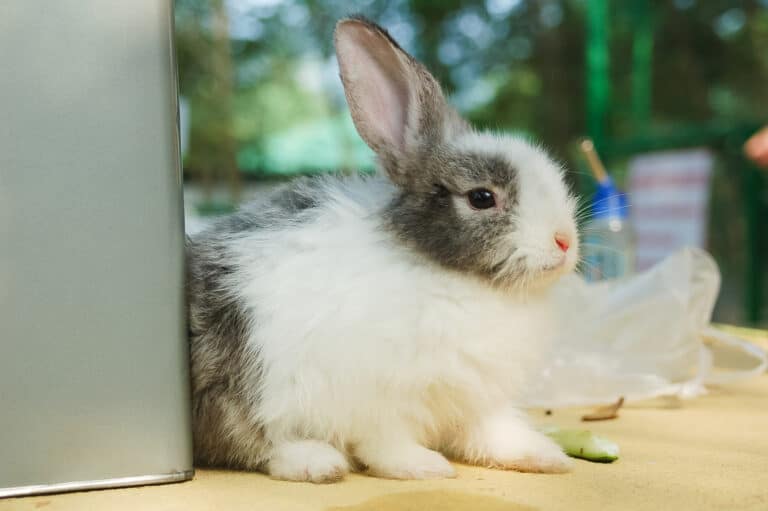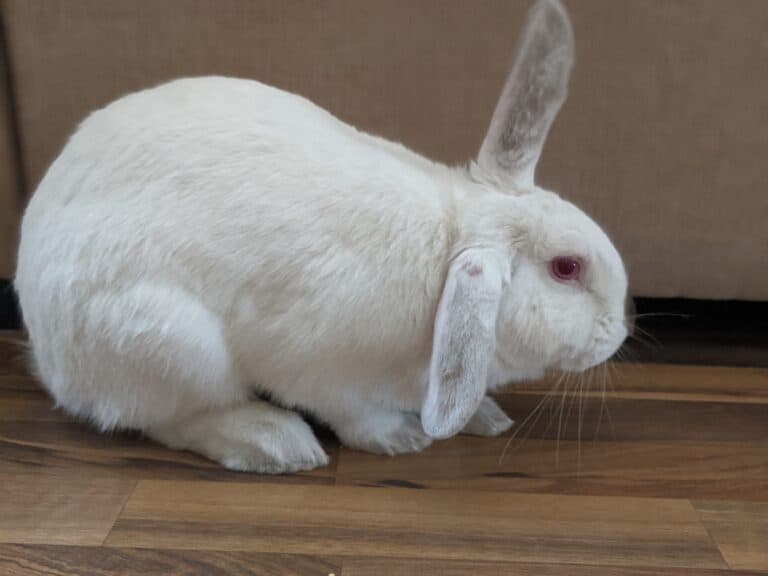Why Do Rabbits Jump Over Each Other?
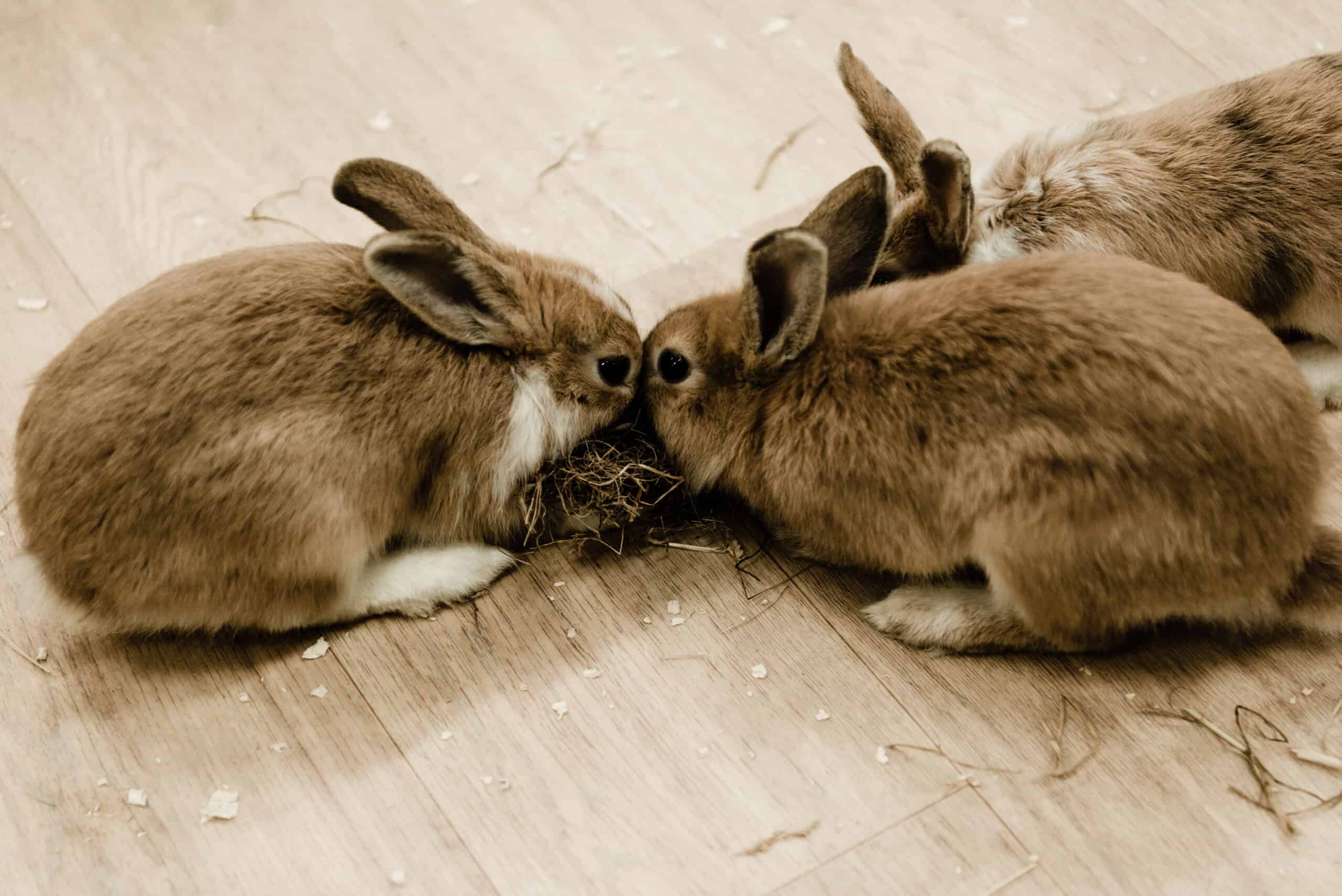
Rabbits are excellent leapers, able to jump as high as four feet. That’s quite a feat considering their size. But these furry bundles of joy don’t just leap straight up; they also seem to enjoy hopping over one another. Although that can be a fascinating sight, many bun lovers can’t help but ask the question, why do rabbits jump over each other?
Well, this inclination can mean different things. Knowing the reasons helps you understand your pet, which is key to becoming an excellent bun owner.
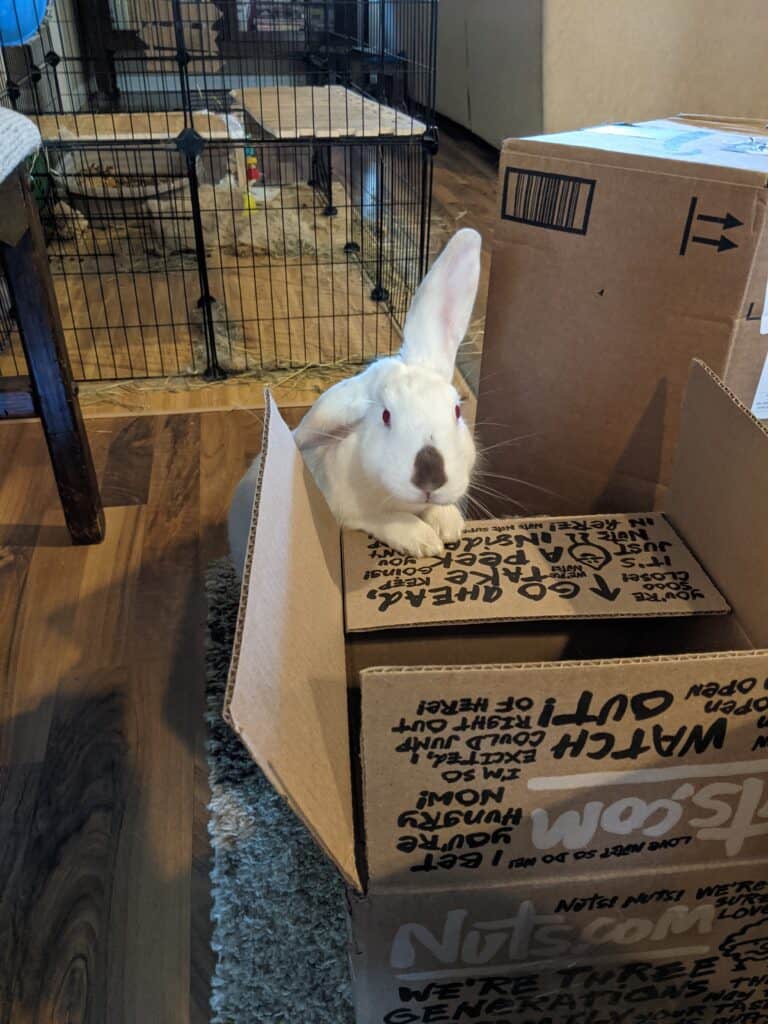
This post contains affiliate links. Affiliate links support Every Bunny Welcome at no additional cost to you. I receive a commission if you choose to make a purchase through these links.
Why Rabbits Jump?
Rabbits employ different means to move around. They walk, run or jump. However, jumping is the quickest way for them to flee from predators or get to where they want to go. One reason for this is their anatomy. Buns have powerful hind legs that can propel them as much as 9 to 10 feet forward. The formidable strength of those legs lets them out-jump even the fastest predators, so they’re basically hardwired to jump.
Rabbits also walk, of course. When they’re not in a hurry or fleeing from danger, they just ramble along. If they feel particularly happy, they may even do the binky.
Why Do Rabbits Jump over Each Other?
Jumping over each other can mean different things for rabbits, depending on their age, gender, and situation. Let’s look at the common reasons why they indulge in this habit:
It’s an Invitation to Mate
Consider it their courtship dance. When a male bun (buck) jumps over a female rabbit (doe), he’s testing the waters to see if she’s interested in mating. Typically, the buck dashes over to the doe to get her attention. The female bun responds by leaping into the air. The higher she jumps, the more interested she is. The two rabbits will then face each other and mate.
This ritual, known as cavorting, can also occur between two males or two females. However, mating often won’t take place when buns of the same gender cavort.
Other signs indicating that two rabbits are interested in mating are the following.
- Following each other everywhere
- Sniffing each other’s behind
- Running and chasing each other in circles
They’re Fighting
Rabbits jumping over each other isn’t always a sign that they’re in the mood for love. It can also mean they’re on the warpath. Two buns who leap at one another may be trying to establish dominance, with each rabbit wanting to have the last say. It often goes this way. One rabbit will charge at the other, who dodges by leaping. Then, it would be the other bun’s turn to charge while the other jumps.
At first glance, it might seem that the bunnies are playing. We admit it’s hard to tell the difference between rabbits who are fighting, playing, or interested in mating. However, seeing these other signs will help establish if they’re indeed fighting.
- Clawing or lunging to push the other rabbit back
- Tense muscles
- Attempts to bite
- Putting the front legs forward
- Staring at each other
They’re Playing
Jumping over each other is one of the ways bunnies play. Rabbits of all ages indulge in this, but it more commonly happens among the young ones. These other indications will tell you that the buns are in play mode.
- They flop to the side
- One or the other may binky
- The ears are perked
- Relaxed stance
They Feel Safe
Playing leapfrog shows your rabbits are comfortable in their living environment. Anxious buns won’t be in the mood to leap over each other but instead will look alert and ready to flee at the first hint of danger. If you see your buns jumping over each other frequently, it means they feel safe in your care.
Its’s a Way to Stay Active
Rabbits are active animals. In the wild, they’re often on the move, foraging for food or exploring their surroundings. Pet buns don’t have as much opportunity as their wild kin to stretch their legs, so they try to find ways to stay fit. Jumping over each other is great exercise. It also keeps their muscles strong and hones their leaping skills, which will come in handy if they ever need to escape perilous situations.
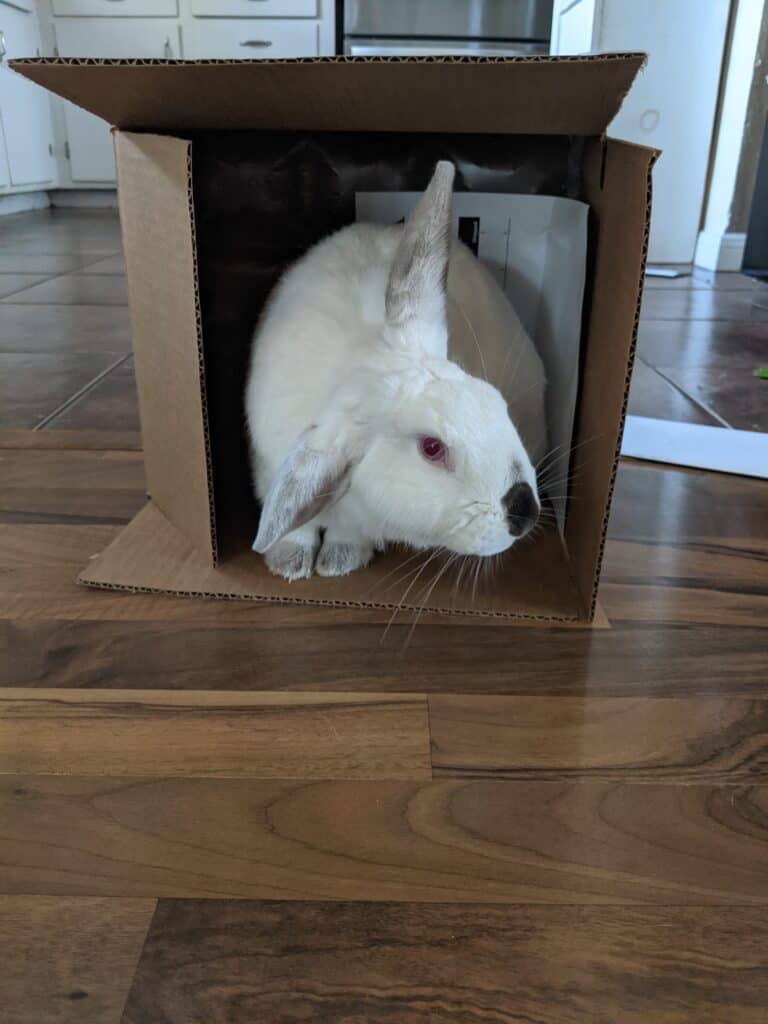
It Indicates Boredom
Because they’re intelligent creatures, rabbits enjoy learning new things. Thus, keeping your pet buns inside a cage with nothing to do can lead to boredom. A bored rabbit will look for something to do. Jumping over each other is one way to pass the time.
You can tell if boredom is behind their inclination to leap over each other if they also engage in destructive behaviors. These include digging, chewing wires, biting you or their companions, staring into space, and picking things up and throwing them in the air.
To Show Affection
Being social creatures, rabbits enjoy having body contact with their kind. This is particularly true for bonded rabbits. Jumping over their friend is a way for a bun to show affection for his companion. This means he wants to be close to his friend by initiating body contact.
To Express Joy
Do your buns leap at one another when you come home or give them a treat? Then, it could mean that jumping at each other is a way to express their joy. Rabbits aren’t as vocal as dogs or cats, so they often use action to show happiness.
The rush of serotonin through their system puts them in a playful mood, and leapfrogging one another is one fun way to play. That means you have some happy rabbits in your care.
Should You Stop Them?
Rabbits, or other creatures for that matter, are happiest when they can behave the way nature designed them to. Jumping at each other is an ingrained trait in rabbits. As such, preventing your pet from indulging in it might lead to more undesirable behavior.
If the act seems like a prelude to fighting or mating, you can intervene by separating the rabbits to prevent an unwanted litter or stop the buns from harming each other. In other instances, it’s best just to let them be.
The more you understand rabbits, the more you can address your pet’s needs. So when you see your bun jumping over another rabbit, you can try identifying why. Knowing what drives your pet to hop over his companion will help determine if you need to interfere or leave them to it.
More on Rabbit Behavior
- Understanding 15 Rabbit Noises and What They Mean
- Why Do Rabbits Lick You? 11 Reasons for This Common Behavior
- Are Rabbits Nocturnal? Tips for Nighttime Activity
- Why Does My Rabbit Nudge Me?
- Can Rabbits See in the Dark?
We hope you enjoyed this post! If you did, will you give it a share or two 🙂 Thank you! ~from Every Bunny Welcome


